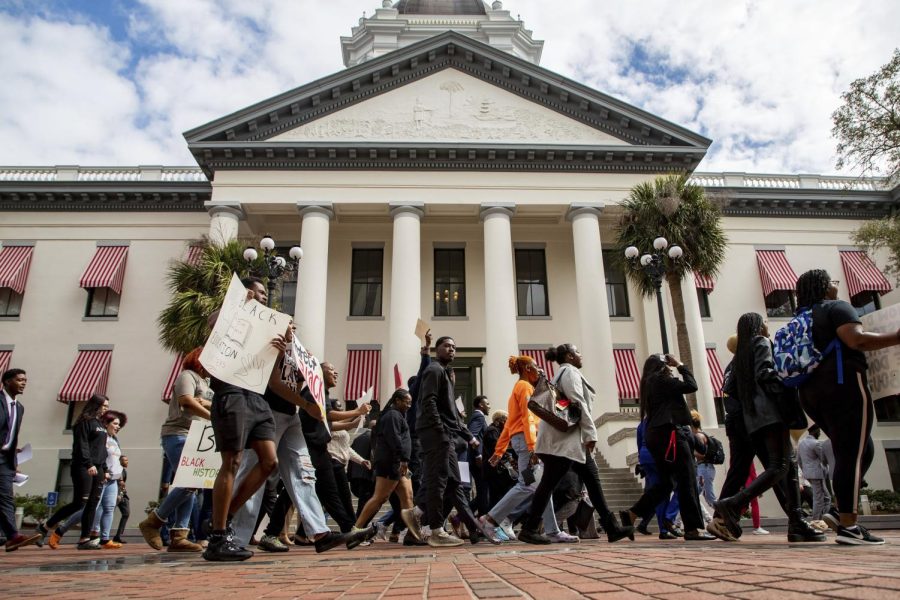DeSantis’ Rejection of AP African American Studies Curriculum Hypocritical and Harmful
The Florida Department of Education made headlines after rejecting the College Board’s Advance Placement (AP) African American Studies course this past January, which is the newest addition to the company’s AP program.
The pilot course, which was created to encapsulate multifaceted perspectives of African American history and culture, was attacked by Florida Governor Ron DeSantis for imposing a “political agenda.” DeSantis, along with Florida’s Education Commissioner Manny Diaz Jr., took specific issue with the inclusion of queer studies, intersectionality and Black Lives Matter aspects of the curriculum, which have since been omitted in response to Florida’s rejection of the course.
DeSantis’ criticism of AP African American Studies stems from his belief that politics and education are inherently separate entities that cannot coincide in the classroom, despite the fact that much of African American history is intertwined with political revolution and protest. Florida’s refusal to implement the original version of the course is a massive disservice to high school students across the United States.
Following Florida’s repudiation of the original AP African American Studies curriculum, DeSantis stood firm in his insistence that Florida supports “education, and not indoctrination.” In making this assertion, DeSantis diminished the importance of intersectionality and representation as mere tactics of a political agenda, rather than a crucial lens through which students can understand the world and make sense of their diverse identities.
The fact that DeSantis equates the introduction of queer and feminist texts as “political indoctrination” is innately hypocritical. The Florida Department of Education expressed concern over authors such as Kimberlé Crenshaw, Robin D.G. Kelley, bell hooks and Angela Davis, but are not perplexed by the fact that year after year, students are exposed to English syllabi and social studies curriculums that lack diversity.
Take any piece of classic literature that is commonplace on a classroom shelf: “The Catcher in the Rye,” “The Great Gatsby” or “The Lord of the Flies.” Chances are that these novels were written by white men, and rarely is a standard curriculum inclusive of BIPOC authors.
While there is nothing wrong with dabbling in the classics, it is extremely unlikely that any traditional course will include texts from, for example, queer Black authors, feminist disability educators or victims of modern colonization. The only exception to this lack of diversity is when a curriculum, such as the original AP African American studies course, makes a concerted effort to include these perspectives.
One could argue that traditional AP courses, such as AP English Literature or AP European History, are similarly “indoctrinating” students by showcasing a limited variety of literature and refusing to educate students about intersectionality and the African American experience, thereby enforcing an agenda without students’ consent. Yet, no one in the Florida Department of Education is making this claim, which begs the question: is the pushback regarding AP African American Studies genuinely due to concern over students’ education, or is it racially motivated?
DeSantis, of course, will argue the former, but Florida’s rejection of the original curriculum threatens the quality of education not only for students in Florida but also for their peers across the country.
Exposure to, analysis of, and discussions regarding queer, feminist and political movements within African American history and culture does not lend itself to indoctrination, but rather to inclusive education. In order to become a productive member of society—which is the overarching goal of public education in America—students must come to terms with uncomfortable truths and cannot be pigeonholed into learning only the aspects of history that are deemed “comfortable” and “apolitical.”
If the Florida Department of Education is uneasy at the thought of diversifying education and introducing students to crucial elements of the African American experience, that is their problem with which to grapple. However, their personal reservations should not impede the education of millions of students, nor should they contribute to the erasure of Black, queer and feminist perspectives.









